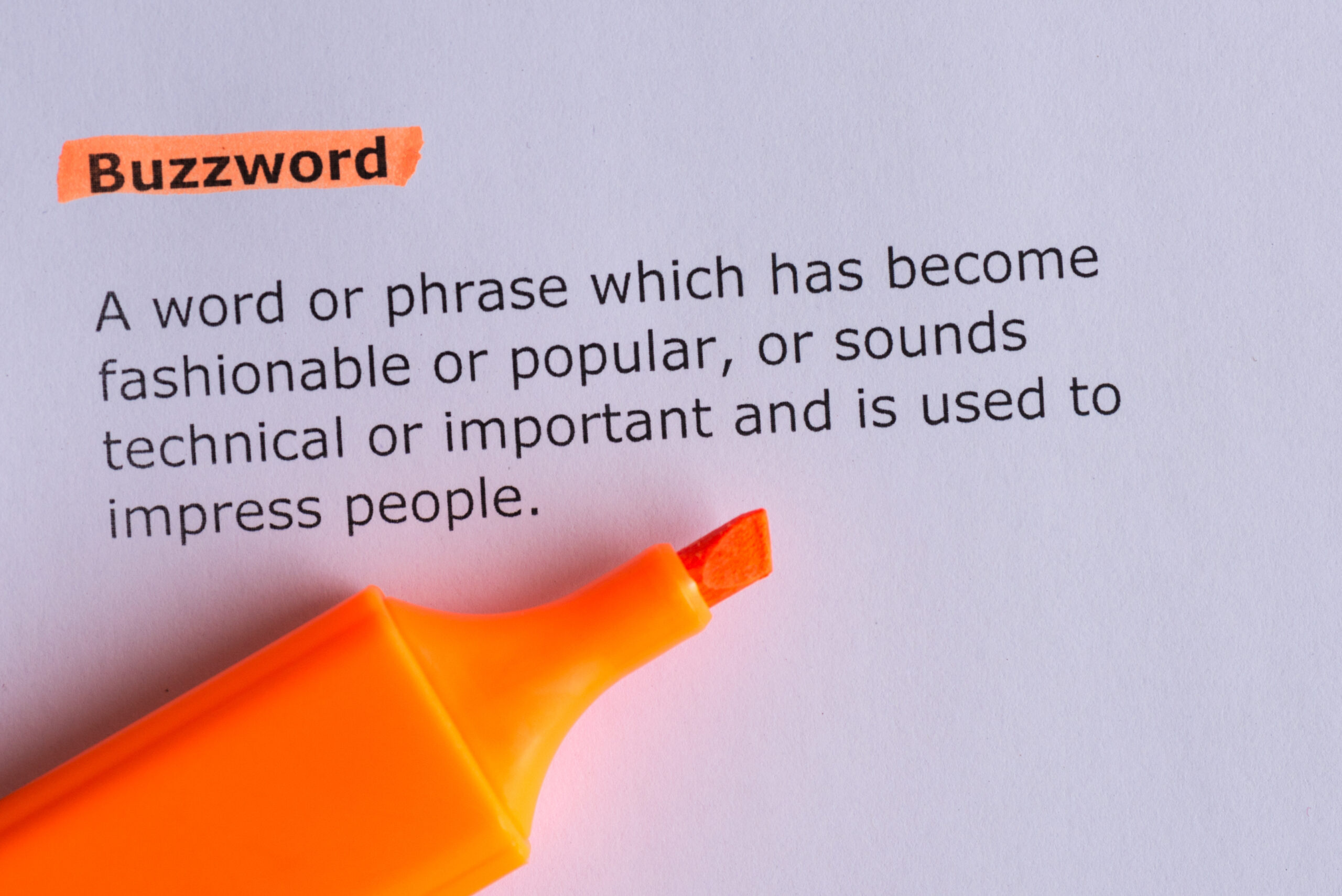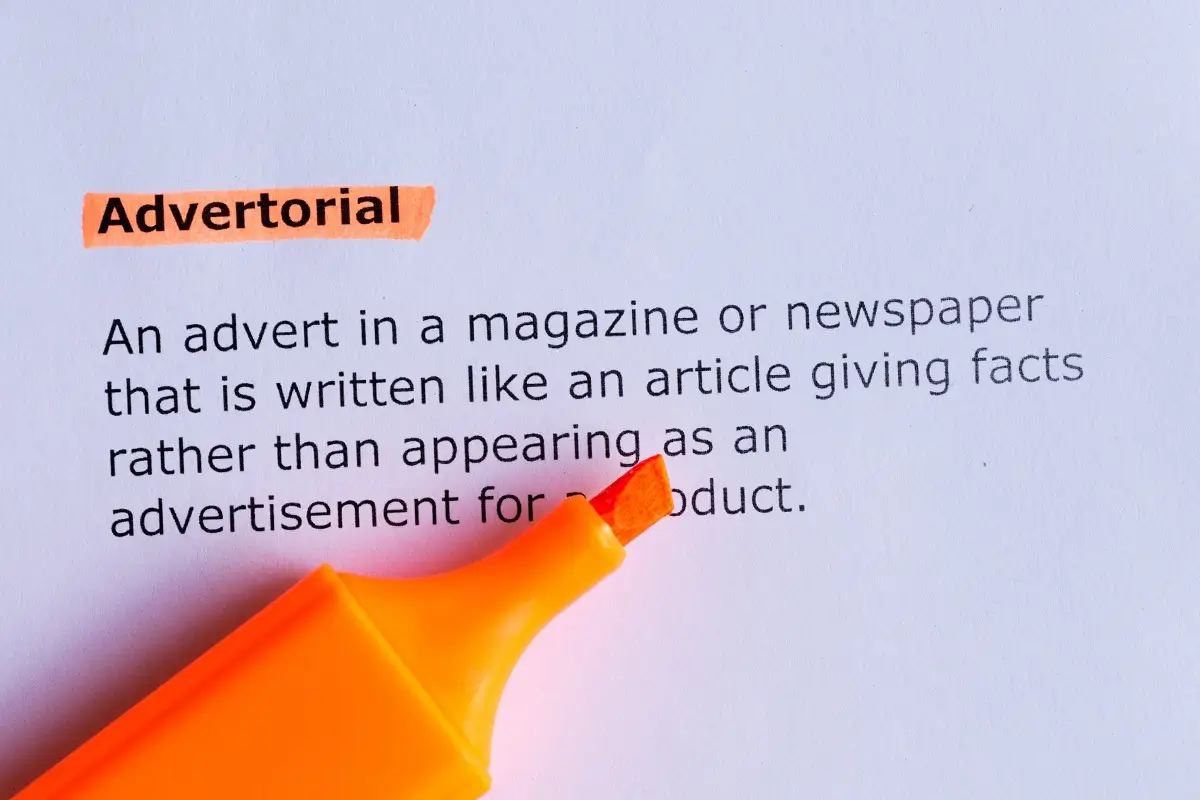
As a professional writer, the topic of corporate speak and jargon overkill is close to my heart. Talk to any skilled wordsmith and they’ll tell you about a self-imposed embargo on common clichés. After all, the very first item on George Orwell’s “Six rules for writing” is “Never use a metaphor, simile, or other figure of speech which you are used to seeing in print.”
So, it’s no wonder that phrases like “Dead in the water,” “In the grand scheme of things” and “Burning the midnight oil” have no place in professionally written sales copy. But this ban carries much more weight than a simple rule to follow – it’s a decree that’s been drummed into every writer during their literary training (in my case, it was a journalism school all those years ago). Once I left university and started working, however, I discovered that my instincts as a writer were seriously challenged.
Corporate speak: Buzzwords choke real talk
As I entered the business arena, I was exposed to many smart people who didn’t share my distaste for widely-quoted figures of speech. In fact, many preferred to use corporate speak over crafting original sentences. With the rise of corporate buzzwords, business language has evolved into a formulaic style packed with dead metaphors.
Corporate buzzwords that need to be disrupted
But as industries and corporate spaces drown in specialized terms, outsiders are left in the dark. They become increasingly frustrated and in need of a corporate jargon translator to cut through the noise and draw the line between jargon words and real communication. This disconnect throws a spotlight on the onslaught of obnoxious corporate buzzwords that choke real communication. On that note, here are the Top 10 most annoying corporate buzzwords according to Preply’s research:
- New normal
- Culture (e.g., “Company culture”)
- Circle back
- Boots on the ground
- Give 110%
- Low-hanging fruit
- Win-win
- Move the needle
- Growth hacking
- Think outside the box
I would add a few more examples of corporate speak that make me do an internal eye roll each time I hear them: Synergy, touch base, move the needle (for crocheting or acupuncture?), on the same page, deep dive, paradigm shift, innovative solutions (what other solutions are there?), value proposition (all propositions should be valuable), going forward, game-changer – and my all-time favorite, “disruptive.” Because, if everyone claims to be disruptive, nothing ever breaks.
Corporate buzzwords are the norm in the business world

Before working as a freelance copywriter within the tech sector, I worked for five years as a business reporter. In my role as a journalist, I had a blast interviewing business players and covering market-moving events. But I also discovered that many professionals often used corporate buzzwords and industry jargon assuming they were universally understood, even by those outside their field. Some relied on catch phrases and corporate speak because they sincerely wanted to communicate effectively; others did so because they wanted to sound knowledgeable within professional circles.
Using jargon words is a lazy shot at power play
While working as a reporter, I liaised a lot with public relations professionals whose job it was to use strategic, persuasive and tailored messaging to their target audience. As a member of that audience, I was frequently under the impression that they employed sound bites and big words because they wanted to impress or obscure information, instead of communicate clearly.
This experience has taught me that original employment of words is, actually, pretty rare. I’ve come to realize that lots of business people will choose jargon words for their efficiency and functionality, and less so for their ability to make an impact. Let’s explore further what is jargon and what makes it so attractive.
Corporate speak is easy and practical
The truth is, familiar maxims are convenient. Corporate speak is the Swiss Army knife of communication – it’s easy to wield and practical for navigating the dialect of bureaucratic jungle. It’s the language of efficiency. It streamlines conversations and gives an air of professionalism.
Tossing corporate buzzwords around enables people to communicate ideas without having to think too creatively about sentence structure. Even I’ll admit that coming up with an authentic way to say something can seriously drain one’s time and patience. Idioms, especially the popular ones, are also clear. They’re easily recognizable and anyone from here to Tangiers will understand what someone means (well, maybe not everyone on that scale, but certainly everyone in your business meeting).
Corporate speak: A shortcut to authority or just plain cringe
Corporate jargon gives off the illusion that complex ideas are simpler than they really are (there’s no such thing as low-hanging fruit and it’s impossible to give 110% of yourself). This is because common clichés give instant authority to those who use them without the need for a lengthy vocabulary workout. Additionally, corporate buzzwords and other ridiculous management speak are the secret handshake of the business world – they offer an express lane to convey ideas while creating a false sense of belonging among the corporate tribe. But while it’s tempting to sprinkle trendy terms into conversation, this habit sounds better in theory. In practice it’s a cringe-fest that’s just waiting to happen.
Using jargon words is like serving reheated leftovers
When every pitch echoes the same tired expressions, you end up sounding like a broken record. Your messages become indistinguishable from the competition. Imagine spending a lot of time crafting an authentic dish but then drowning it in too much seasoning from the supermarket. The original flavor will get lost. But your sales copy doesn’t have to sound like everyone else’s. In fact, you can substitute every tired cliché cited by Preply’s research with a useful alternative. Check out the possibilities:
- New normal vs. current reality or new circumstances.
- Culture (e.g., “Company culture”) vs. corporate character or the company ethos.
- Circle back vs. revisit the topic, return to the discussion, readdress the matter or reconnect on this.
- Boots on the ground vs. operational staff or field personnel.
- Give 110% vs. exceeding expectations, pouring your heart into it or giving a wholehearted effort.
- Low-hanging fruit vs. easier wins, quicker victories, simpler gains, immediate opportunities and effortless targets.
- Win-win vs. mutually beneficial, advantageous for all, cooperative success, shared victory, two-way advantage and collective gain.
- Move the needle vs. catalyze improvement, generate movement, ignite transformation, propel forward, influence progress, shift the dial and make an impact.
- Growth hacking vs. agile business development, scalable growth methods, rapid expansion strategies and nimble growth tactics.
- Think outside the box vs. deviate from the norm, foster original thinking, embrace unconventional solutions and challenge traditional perspectives.
Jargon words are boring & threaten your sales copy’s impact
In a nut shell, common clichés are the elevator music of advertising – bland, forgettable and unlikely to make you move to the beat. But aside from being dull and insipid, clichés can jeopardize your sales copy for a slew of other reasons. Common clichés are also:
- Mechanical and aloof. Prioritizing metrics, ROI and efficiency over authentic language can lead to a robotic and impersonal tone.
- Stuffy. Hierarchies and traditional formalities stifle open and genuine discourse with partners, customers and employees.
- Inflexible. Upholding a rigid brand image and communications strategy often compels the reliance on corporate speak, sacrificing genuine language in the process.
- Not sincere enough. Industry-specific jargon words create a barrier to honest communication. If your messaging is dishonest, you’ll draw in clients with expectations that you can’t meet.
- Not attention grabbing. Safe and conventional language is boring and used out of fear of negative consequences. Bold messaging captivates audiences, communicates confidence and distinguishes a brand. It cuts through the noise, leaves a lasting impression and encourages engagement.
- Fad victims. Competitive pressure compels organizations to follow trends such as corporate speak over using authentic expression.
Ditch ridiculous management speak to transform outcomes
Striking a balance between professionalism and authenticity in communication is a delicate, challenging act for all organizations. But the minority of brands that refuse to swim in the sea of sameness stand to reap major rewards. Some have been so unafraid, bold and original in their messaging that they’ve canonballed into legendary status. Check out these marketing mavericks whose campaigns dropped corporate speak and succeeded in connecting with audiences on a profound level:
- Apple’s 1984 commercial. The ad’s artistic reference to George Orwell’s novel about a dystopian society destroyed by a young woman smashing a screen positioned Apple as the tech industry’s new mover and shaker.
- Airbnb’s “Belong anywhere” campaign. Highlighting the concept of traveling while staying in a place that feels like home, the ad struck a chord with travelers looking for different and personal experiences. The campaign catapulted Airbnb into the forefront of global hospitality innovation, establishing it as a leader in the sharing economy.
- Nike’s “Just Do It” campaign. Introduced in 1988, the slogan encouraged action and determination, changing sports advertising forever with its simplicity and universal appeal.
- Dove’s “Real Beauty” campaign. By featuring real women of diverse body types, ages and ethnicities, the ad challenged conventional beauty standards and sparked conversations about self-esteem and body image. As a result, the brand snagged major spotlight in the early 2000s, inspiring many others to follow suit.
- Red Bull’s Stratos Jump. Red Bull’s sponsorship of Austrian skydiver Felix Baumgartner’s 2012 jump from a helium balloon in the stratosphere broke records for the highest freefall and fastest speed. The event was live-streamed and generated huge online buzz.
- Old Spice’s “The man your man could smell like” campaign. In 2010, the company’s series of commercials featuring a humorous “Old Spice Guy” became a viral phenomenon. They gave a boost to the brand by repositioning Old Spice as a contemporary and entertaining choice of men’s fragrance.
Conclusion: Corporate speak sabotages sales
Corporate speak is the duct tape of communication—convenient but, ultimately, mundane and utilitarian without much aesthetic appeal. While common clichés may be efficient tools, expressions that are used too often suck the vitality out of your messaging. Prospects are so used to seeing them in media that they no longer make the desired impact. This means that, instead of attracting potential buyers, you’re sending them sprinting for the woods.
Although mastering the high-wire act of blending professionalism and authenticity is no smooth sailing, some companies dare to be different and end up surfing the waves of success. So take cues from marketing legends like Dove, Apple and Nike and toss out the corporate buzzwords. You’ll end up establishing trust, building genuine connections with your prospects and fostering long-term brand loyalty.
Does your sales copy need a corporate jargon translator? If you need to detox your messaging from jargon overkill and boost conversions, I’d love to hear about your corporate speak challenge. Drop your thoughts in the comments. If this post gave you some fresh ideas, hit subscribe for more tips on elevating your sales copy!







